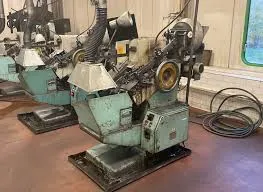
-
 Afrikaans
Afrikaans -
 Albanian
Albanian -
 Amharic
Amharic -
 Arabic
Arabic -
 Armenian
Armenian -
 Azerbaijani
Azerbaijani -
 Basque
Basque -
 Belarusian
Belarusian -
 Bengali
Bengali -
 Bosnian
Bosnian -
 Bulgarian
Bulgarian -
 Catalan
Catalan -
 Cebuano
Cebuano -
 Corsican
Corsican -
 Croatian
Croatian -
 Czech
Czech -
 Danish
Danish -
 Dutch
Dutch -
 English
English -
 Esperanto
Esperanto -
 Estonian
Estonian -
 Finnish
Finnish -
 French
French -
 Frisian
Frisian -
 Galician
Galician -
 Georgian
Georgian -
 German
German -
 Greek
Greek -
 Gujarati
Gujarati -
 Haitian Creole
Haitian Creole -
 hausa
hausa -
 hawaiian
hawaiian -
 Hebrew
Hebrew -
 Hindi
Hindi -
 Miao
Miao -
 Hungarian
Hungarian -
 Icelandic
Icelandic -
 igbo
igbo -
 Indonesian
Indonesian -
 irish
irish -
 Italian
Italian -
 Japanese
Japanese -
 Javanese
Javanese -
 Kannada
Kannada -
 kazakh
kazakh -
 Khmer
Khmer -
 Rwandese
Rwandese -
 Korean
Korean -
 Kurdish
Kurdish -
 Kyrgyz
Kyrgyz -
 Lao
Lao -
 Latin
Latin -
 Latvian
Latvian -
 Lithuanian
Lithuanian -
 Luxembourgish
Luxembourgish -
 Macedonian
Macedonian -
 Malgashi
Malgashi -
 Malay
Malay -
 Malayalam
Malayalam -
 Maltese
Maltese -
 Maori
Maori -
 Marathi
Marathi -
 Mongolian
Mongolian -
 Myanmar
Myanmar -
 Nepali
Nepali -
 Norwegian
Norwegian -
 Norwegian
Norwegian -
 Occitan
Occitan -
 Pashto
Pashto -
 Persian
Persian -
 Polish
Polish -
 Portuguese
Portuguese -
 Punjabi
Punjabi -
 Romanian
Romanian -
 Russian
Russian -
 Samoan
Samoan -
 Scottish Gaelic
Scottish Gaelic -
 Serbian
Serbian -
 Sesotho
Sesotho -
 Shona
Shona -
 Sindhi
Sindhi -
 Sinhala
Sinhala -
 Slovak
Slovak -
 Slovenian
Slovenian -
 Somali
Somali -
 Spanish
Spanish -
 Sundanese
Sundanese -
 Swahili
Swahili -
 Swedish
Swedish -
 Tagalog
Tagalog -
 Tajik
Tajik -
 Tamil
Tamil -
 Tatar
Tatar -
 Telugu
Telugu -
 Thai
Thai -
 Turkish
Turkish -
 Turkmen
Turkmen -
 Ukrainian
Ukrainian -
 Urdu
Urdu -
 Uighur
Uighur -
 Uzbek
Uzbek -
 Vietnamese
Vietnamese -
 Welsh
Welsh -
 Bantu
Bantu -
 Yiddish
Yiddish -
 Yoruba
Yoruba -
 Zulu
Zulu
Efficient Thread Rolling Machines and Their Operational Processes for Optimal Performance
The Best Thread Rolling Machine Working Principles and Applications
Thread rolling machines are essential tools in the manufacturing industry, particularly in the production of screws, bolts, and various types of fasteners. These machines utilize a unique process to create threads on cylindrical workpieces, resulting in precision parts that are widely used in automotive, aerospace, and construction industries. In this article, we will explore the working principles of thread rolling machines, their benefits, and applications.
Working Principles of Thread Rolling Machines
The thread rolling process involves deforming material to create threads rather than cutting it away, which is common in traditional machining methods. This deformation is achieved through rotary die mechanisms that apply axial pressure on the workpiece. The key components of a typical thread rolling machine include
1. Rolling Dies The most critical parts are the rolling dies, which come in sets to create the desired thread profile. The dies are hardened steel pieces designed to shape the material when it is fed through the machine. 2. Feed Mechanism This component accurately positions the workpiece for threading. Depending on the design, the machine can handle multiple sizes and shapes of workpieces, enhancing versatility.
3. Power Source Thread rolling machines can be powered by electric motors or hydraulic systems, providing sufficient force to shape the material effectively.
4. Control Systems Modern thread rolling machines are equipped with sophisticated control systems that allow for precise adjustments in speed, pressure, and alignment. This ensures consistent quality and enables operators to fine-tune the process for different materials and thread specifications.
The actual process begins with the workpiece entering the machine, where it is gripped by the feed mechanism. As the die rolls around the material, it exerts pressure, causing the material to flow and form the desired thread shape. The entire process is executed in a matter of seconds, resulting in high productivity rates.
Benefits of Thread Rolling Machines
best thread rolling machine working

1. High Strength and Durability Since thread rolling creates threads through deformation, the resulting parts exhibit improved grain structure and density. This enhancement leads to stronger threads that resist stripping and wear.
2. Cost-Effective Production Compared to machining, thread rolling minimizes material waste and reduces production costs. The process speeds up manufacturing times significantly, making it a preferred choice for high-volume production.
3. Precision and Quality With modern control systems, thread rolling machines can produce parts with tight tolerances. The process ensures consistent thread profiles, which is crucial for applications requiring precise fit and performance.
4. Versatility These machines can produce various thread types, including metric, UNC, and UNF threads, on different sizes of workpieces. This versatility makes them suitable for multiple industries, from fasteners to automotive parts.
Applications of Thread Rolling Machines
Thread rolling machines are widely used in many sectors, including
- Automotive Industry Fasteners that secure vehicle components rely heavily on thread rolling for their production. - Aerospace High-strength, lightweight fasteners created through thread rolling are crucial for aircraft assemblies. - Construction Structural bolts and nuts manufactured via thread rolling endure the significant stresses encountered in construction applications.
In conclusion, the best thread rolling machines utilize innovative mechanisms to deliver high-quality threaded components efficiently. Their ability to improve strength, reduce waste, and provide versatile applications makes them invaluable in modern manufacturing. As industries continue to evolve, the importance of thread rolling machines in producing reliable and precise fasteners will remain a vital part of the production landscape.
